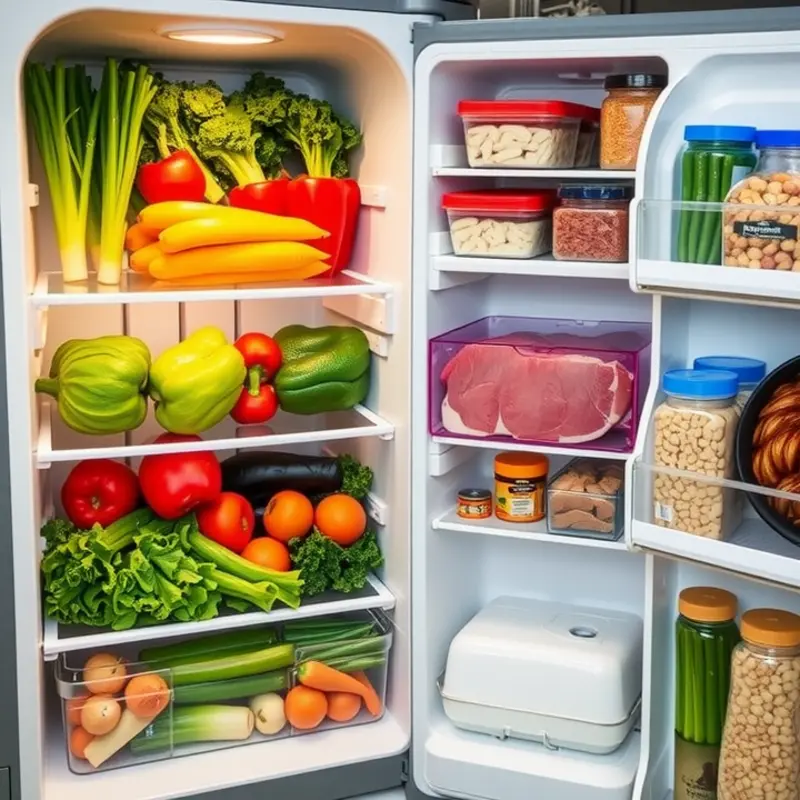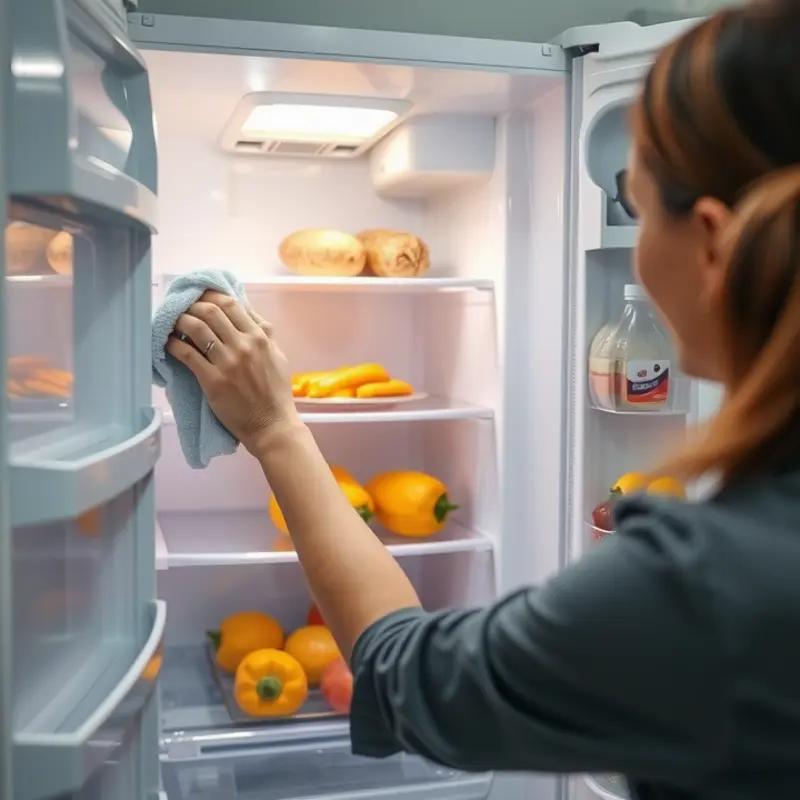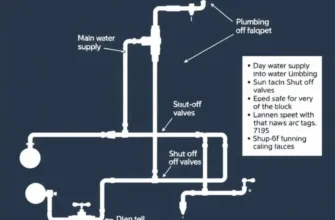Keeping your refrigerator in good condition is essential for a smooth living experience in your apartment. For renters throughout the U.S., understanding how to properly care for your refrigerator reinforces not just food safety but also your sense of security and peace of mind. Whether you’re dealing with a compact model or a full-sized unit, a little proactive care goes a long way toward ensuring your appliance remains efficient and functional. From proper cleaning techniques to preventative maintenance, this guide will walk you through best practices designed specifically for renters who wish to minimize hassle in their living spaces. As you navigate the ins and outs of apartment living, having a well-maintained refrigerator shouldn’t be a burden. Instead, it should be a simple and straightforward part of your routine—making sure that your food stays fresher for longer and that unexpected repair bills are kept at bay. Let’s dive into essential refrigerator care tips tailored just for you.
Daily Maintenance: Simple Tasks for a Smooth Operation

Keeping your apartment refrigerator running smoothly doesn’t demand extensive time or effort. A few simple daily tasks, seamlessly integrated into your routine, can ensure both safety and efficiency. Here are some key practices to maintain the optimal performance of your fridge:
1. Adjust Temperatures:
Regularly check the temperature settings to ensure they are optimal for food safety. The ideal fridge temperature is around 37°F (3°C) and for the freezer, it’s 0°F (-18°C). Fluctuations can lead to spoiling or freezer burn, thus adjusting them prevents potential issues.
2. Surface Wiping:
A quick daily wipe of the exterior and handles keeps your fridge germ-free. Eliminate sticky spills immediately, especially around the corners and seals. Ensure the space around the refrigerator is dust-free by lightly vacuuming the floor and coils occasionally, preventing dust buildup that can hinder performance.
3. Organize the Interior:
Proper organization prevents perishable items from hiding and getting lost. Position groceries to promote airflow around shelves, thus maintaining a consistent environment throughout. Create sections in your fridge for different types of items, like dairy, meats, and vegetables, ensuring everything is visible and within reach.
4. Check for Expired Items:
A quick glance every day for expired or near-expired products prevents overcrowding. Rotating items ensures older products are easier to spot and use before they spoil, reducing waste and freeing up space. This approach supports general tidiness and extends the life of perishables.
5. Odor Management:
Detecting odors early helps manage them before they become problematic. Baking soda or specifically designed fridge deodorizers are effective. But remember, prevention is always better. Ensure lids are tightly closed to avoid spillage that causes smells.
These daily practices will help elongate the life of your refrigerator and contribute to a safe and pleasant living environment. Ongoing maintenance eases larger cleaning chores and reduces the likelihood of technical issues. For more on tailoring similar routines, consider developing apartment-friendly cleaning schedules.
Incorporating these small tasks will take you a long way in securing the proper functioning of your apartment refrigerator. A little bit of attention each day can save you from the hassle of major maintenance down the line.
Deep Cleaning and Troubleshooting: The Essentials

Deep cleaning your apartment refrigerator involves more than just wiping spills and rearranging contents. It’s a periodic task that ensures your refrigerator remains hygienic, odor-free, and energy-efficient. Start by emptying the fridge of all items. Discard expired foods and wipe jars and bottles to prevent sticky spots. This step is crucial in preventing mold and unpleasant odors.
Clean shelves and drawers individually, as they collect most of the spills and debris. Remove them if possible, and wash with warm, soapy water. For stubborn stains, a paste of baking soda and water works wonders. Dry them thoroughly before placing back in the refrigerator to prevent moisture buildup.
Don’t overlook the refrigerator’s interior walls and ceiling. Use a soft cloth and a mixture of vinegar and water. Vinegar not only cleans but also acts as a natural deodorizer. Pay special attention to the door gasket, which often loses elasticity due to dirt buildup, affecting the door seal. Cleaning it with a solution of water and mild detergent maintains its seal and efficiency.
While deep cleaning, be alert for signs that your refrigerator might need maintenance. Listen for unusual noises. If your fridge is making loud or continuous sounds, it may need to be rebalanced. Adjust the feet to ensure it’s level, reducing strain on the compressor and improving efficiency.
Check for inconsistent temperatures. A malfunctioning refrigerator might feel colder or warmer than usual. Invest in a small thermometer to monitor the internal temperature. It should remain between 37°F and 40°F to keep food fresh. If you notice temperature fluctuations, check the vents inside the fridge for blockage from food items. Good air circulation is vital for maintaining consistent cooling.
Avoid excessive ice buildup in the freezer, which can indicate a faulty door seal or gasket. Defrost the freezer when the ice becomes more than a quarter-inch thick. Turn off the refrigerator, and allow the ice to melt naturally or use warm water to expedite it. Once cleared, clean the freezer with the same vinegar solution to keep it fresh.
Handling spills safely in the refrigerator prevents future issues. Immediately clean up any liquid spills to prevent sticky residue and potential electrical hazards. For spills involving raw meat, disinfect the area promptly to avoid cross-contamination. Use a mild bleach solution and ensure the spot is thoroughly rinsed and dried before returning food to the area.
Maintaining the functionality of your refrigerator is crucial for avoiding unnecessary repairs or appliance downtime. For additional insights on safe practices and further enhancing your home’s care routine, you might find it beneficial to explore safe apartment chemical disposal. This resource provides valuable guidance to promote a safe and well-maintained living environment.
Follow these deep cleaning and troubleshooting tips to keep your refrigerator running smoothly, thereby extending its lifespan and ensuring food safety.
Final words
Caring for your apartment refrigerator doesn’t have to feel overwhelming. By incorporating daily maintenance routines and scheduling occasional deep cleaning, you can ensure your appliance remains reliable and safe. This not only preserves the quality of your food but also enhances your overall living experience. Make conscious choices about what you store, prioritize regular clean-ups, and handle any issues promptly to enjoy a hassle-free kitchen environment. Remember, a well-maintained refrigerator is a key component in managing a healthy, organized apartment. By following the tips outlined here, you can ensure that this vital appliance serves you well for years to come.









